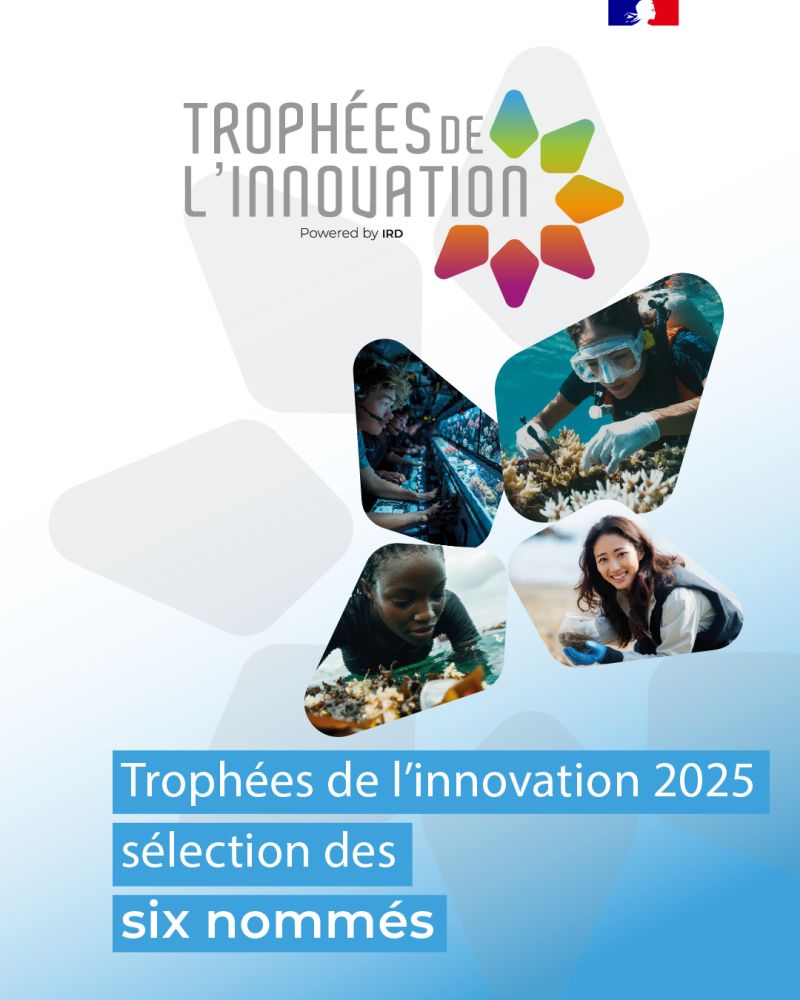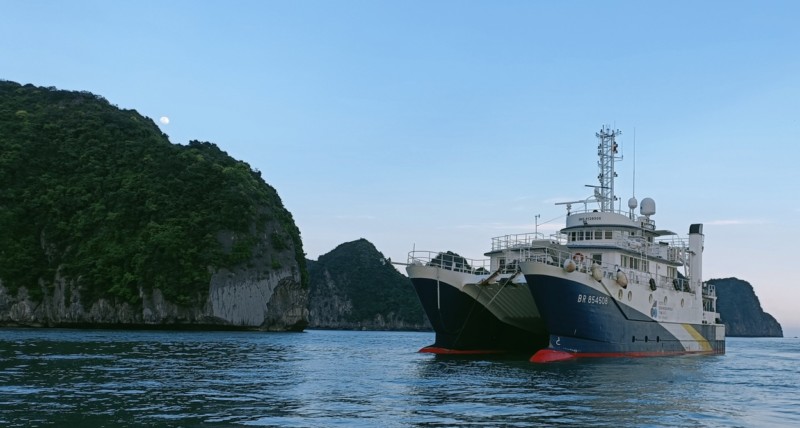Six nominees have been selected by the Expert Committee. At the conclusion of this 2025 edition, two winners will be awarded for their high-impact innovative projects during the Blue Africa Summit, to be held in Tangier on October 9 and 10.
As part of the Year of the Sea, the six selected projects focus on Coastal and Ocean themes, one of the societal challenges promoted by IRD. These projects adopt an interdisciplinary, multi-stakeholder approach and offer real added value compared to existing solutions.
The six nominees will receive training in entrepreneurship and project development, as well as coaching for pitching, to best showcase their initiatives.
The final competition will consist of presenting their project in 180 seconds on October 9 and 10 during the Blue Africa Summit, in front of an international jury composed of representatives from various socio-economic actors.
Meet the Six Nominees
- Arame DIEYE – Early-career researcher collaborating with the UMRs Paloc and Espace-DEV
Project title: Design of an early warning system (EWS) for spring tides and storm surges to improve sustainable rice production in Guinea-Bissau
Project summary: Early warning system for floods and reinforcement of dikes
Future vision: To fill the knowledge and forecasting gap on coastal flooding in West Africa, improving the resilience of farming communities facing sea-level rise and extreme tidal events.
Why participate? The Innovation Awards offer a unique opportunity to highlight applied oceanographic research providing concrete, innovative solutions to protect vulnerable populations from climate change impacts. - Badara SANE – Early-career researcher collaborating with UMR LOCEAN, Senegal
Project title: Forecasting extreme marine currents on the Petite Côte of Senegal (2025-2027)
Project summary: Development of an alert and forecast tool for extreme coastal events targeting fishers and other actors on Senegal’s Petite Côte
Future vision: To make this forecasting system a regional operational tool, co-created with coastal communities (fishers), to strengthen resilience against marine risks amplified by extreme currents.
Why participate? The Innovation Awards provide a unique platform to showcase useful, collaborative research and accelerate the transition from science to practical action. - Fanny RIOUAL – PhD candidate at UMR LEMAR, Peru
Project title: Dynamics of hydrogen sulfide associated with hypoxic conditions in a coastal bay of the Peruvian upwelling system, and its impact on the physiology of the Peruvian scallop (Argopecten purpuratus)
Project summary: Monitoring environmental impact of H2S pollution on scallop aquaculture in Peru
Future vision: To help Peruvian producers reduce scallop mortality risk by developing adaptive and sustainable aquaculture strategies based on research findings.
Why participate? The Awards offer great support for developing and implementing new aquaculture strategies derived from doctoral research. - Thanh Huyen TRAN – PhD candidate at LMI LOTUS, Vietnam
Project title: Characterization of mesoscale sea dynamics in coastal regions using high-frequency radars and numerical modeling
Project summary: Monitoring coastal circulation with high-frequency radar systems
Future vision: To expand the project across Southeast Asia, leveraging existing HF radar infrastructure to integrate the framework into national early warning systems and improve environmental prevention.
Why participate? Scientific research should lead to practical, sustainable solutions addressing urgent problems like climate change and coastal disasters. The Innovation Awards are a valuable chance to bridge science and real-world application. - Nicolas GARCIA-SEYDA – PhD candidate at UMR ENTROPIE, New Caledonia
Project title: SWIM2CORAL – A natural solution to protect corals
Project summary: In situ microfluidics to isolate local microorganisms naturally attracted to corals for use in protecting and restoring coral reefs after bleaching events
Future vision: To develop a nonprofit, globally shared coral reef protection solution, keeping the approach in the public domain and prioritizing climate justice and societal well-being over commercial interests.
Why participate? To develop entrepreneurial skills, increase project visibility, and seek funding for implementation. - Tobias FISCHER – PhD candidate at UMR SECOPOL, French Polynesia
Project title: From imaging to action: large-scale coastal monitoring for Pacific atolls
Project summary: Detecting and tracking coastline changes via automated methods
Future vision: To make high-resolution satellite coastal monitoring a practical, scalable tool for Pacific atolls, providing local stakeholders with better data to address erosion, flooding, and climate risks.
Why participate? To bring research beyond the lab into the hands of those shaping the future of low-lying islands—from local planners to risk managers.



